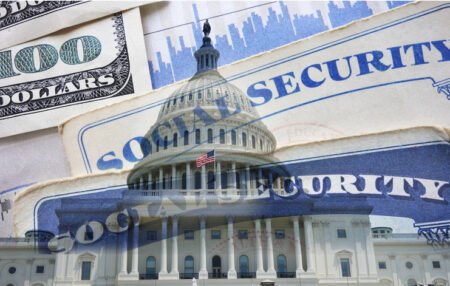If you are approaching retirement and have savings in a 457(b) retirement plan, you might wonder which taxes you’ll pay on withdrawals after age 70. This is important when it comes to retirement planning. Otherwise, it could be hard to accurately estimate your future income and tax liabilities. While 457(b) plans offer unique benefits when compared with other retirement accounts, they are not exempt from tax rules.
You can also consider working with a financial advisor who can help you structure withdrawals to minimize your tax burden.
457(b) Plans Explained
A 457(b) plan is a type of tax-advantaged retirement plan available to state and local government employees, as well as certain nonprofit employees. These plans allow workers to defer a portion of their salary into the account on a pre-tax basis. It grows tax-deferred until withdrawals begin.
Withdrawals
Withdrawals from a 457(b) plan can begin as soon as you separate from your employer, regardless of age. Other retirement accounts like 401(k)s and 403(b)s, typically impose early withdrawal penalties before age 59.5. However, once you start taking distributions, the IRS will tax those amounts are as ordinary income.
Required Minimum Distributions (RMDs)
Like other tax-deferred retirement plans, 457(b) plans are subject to required minimum distributions (RMDs). This means that starting at age 73 (for individuals who turn 72 after January 1, 2023), you must withdraw a minimum amount from your 457(b) account annually. The IRS calculates RMDs based on your age and account balance.
Taxes on 457 Withdrawals After Age 70
So, do you pay taxes on 457 withdrawals after age 70? Yes, you do. Withdrawals from a 457(b) plan after age 70 are subject to ordinary income tax. The IRS adds the amount you withdraw to your gross income for the year. It taxes your withdrawal at a rate based on your tax bracket. Only contributions made on an after-tax basis (rare in 457(b) plans) earn an exemption, or if your income falls below the standard deduction threshold. There are no additional tax penalties for withdrawals after age 70, but the standard income tax rules still apply.
Other Considerations

When thinking about the tax on 457 withdrawals after age 70, there’s still more to consider. The following items may affect your tax liability and retirement income strategy.
State and Local Taxes
While the IRS taxes 457(b) distributions at the federal level, your state may also levy income taxes on withdrawals. Some states offer exclusions for certain types of retirement income, while others do not. For example, states like Florida and Texas do not tax income at all. This could make a big difference in your net retirement income. Check the tax rules in your state or speak with a tax consultant to understand how local governments will tax your distributions.
Mandatory Withholding
The IRS will withhold a portion of your 457(b) withdrawal for taxes when you take a distribution. This is often 20% for lump-sum distributions, although you can elect a different withholding rate depending on your situation. If too much or too little is withheld, you’ll need to reconcile the difference when you file your tax return. Planning for withholding helps avoid a surprise tax bill or a penalty for underpayment.
Retirement Planning and Income Management
While 457(b) withdrawals after age 70 are taxed as ordinary income, proactive planning can help reduce the amount of taxes you owe. By managing your income streams strategically, you can potentially lower your marginal tax rate, preserve more of your retirement savings and improve your overall financial outlook in retirement.
Here are several ways to minimize tax liability:
- Delay Social Security benefits: If you haven’t yet claimed Social Security, consider postponing your benefits. Delaying Social Security up to age 70 increases your monthly benefit while also reducing your total taxable income in the earlier retirement years, making it easier to take 457(b) distributions while staying in a lower tax bracket.
- Coordinate with tax-advantaged accounts: You can supplement your income with tax-free withdrawals from a Roth IRA or withdrawals from taxable brokerage accounts with favorable capital gains treatment. Using these accounts strategically alongside your 457(b) distributions can help spread income across multiple tax treatments and reduce your taxable burden.
- Withdraw more in low-income years: If you anticipate that your income will rise in future years, perhaps from RMDs or pension payments, consider taking larger 457(b) distributions now while your tax rate is still low. This approach can help smooth out your income over time and avoid being pushed into a higher bracket later.
- Plan around required minimum distributions (RMDs): After age 73, you’ll need to begin taking RMDs from your 457(b) unless you’re still working for the sponsoring employer. Planning ahead by gradually drawing down your account before RMDs kick in can help avoid steep tax bills later on.
- Use qualified charitable distributions (QCDs): Although QCDs are generally not allowed directly from 457(b) plans, if you roll over funds to an IRA, you may use QCDs to donate up to $100,000 per year tax-free to charity. This can reduce your taxable income while supporting causes you care about.
Bottom Line

So, will you pay tax on 457 withdrawal after age 70? Yes, but, with the right strategy, you can manage those taxes and preserve more of your retirement income. Distributions are taxed as ordinary income and are subject to RMD rules starting at age 73. State and local taxes, withholding requirements, and broader retirement planning considerations can all affect your final tax bill.
Retirement Planning Tips
- A financial advisor can help you set and reach different financial goals for your retirement. Finding a financial advisor doesn’t have to be hard. SmartAsset’s free tool matches you with vetted financial advisors who serve your area, and you can have a free introductory call with your advisor matches to decide which one you feel is right for you. If you’re ready to find an advisor who can help you achieve your financial goals, get started now.
- SmartAsset’s Social Security calculator can help you estimate future monthly government benefits.
Photo credit: ©iStock.com/Drazen Zigic, ©iStock.com/vgajic, ©iStock.com/FatCamera
Read the full article here
















